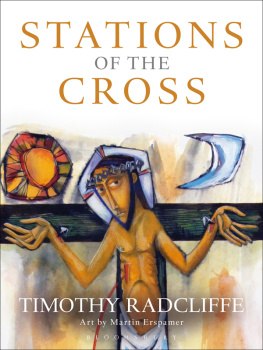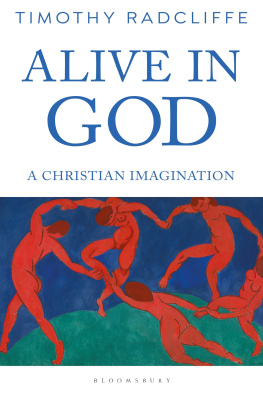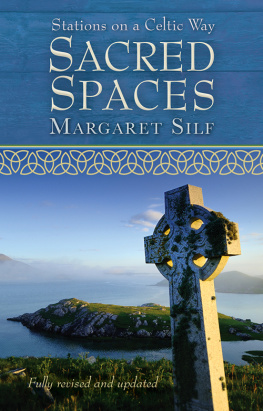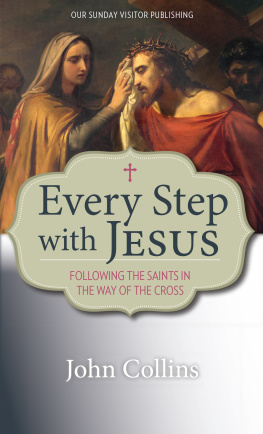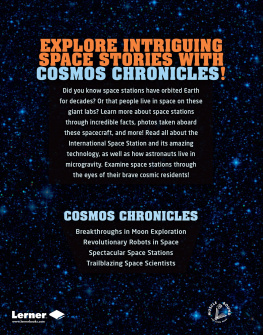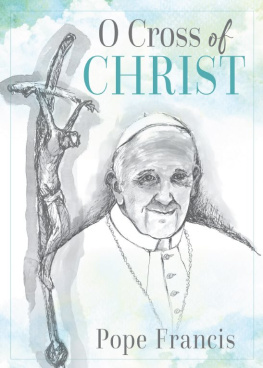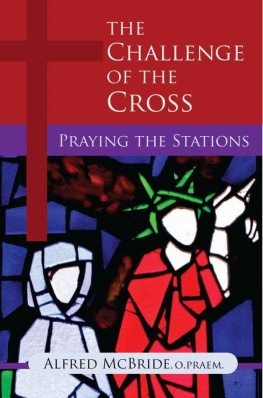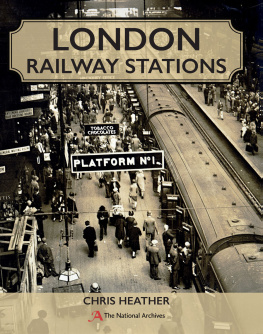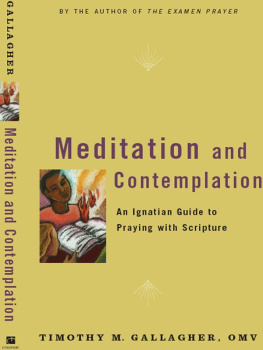Stations of the Cross
STATIONS
OF THE CROSS
Timothy Radcliffe
Art by Martin Erspamer
CONTENTS
Almost every Catholic church has the Stations of the Cross on its walls. Moving from each station to the next, we accompany Jesus on his short journey from the palace of Pontius Pilate in Jerusalem, where he was condemned to death, to the cross and then to his tomb. This brief and tortuous journey happened in a hot and dusty city in the Middle East two thousand years ago. What sense does it make to reenact it in churches from Alaska to Cape Town today? What is going on?
This ancient devotion is the fruit of two traditions that are in fruitful tension with each other. On the one hand, God is everywhere; we do not have to go to any special place to encounter the divine. God is just as much in Johannesburg or Jakarta as Jerusalem. On the other hand, God became flesh and blood in this particular human being, who lived in a remote outpost of the Roman Empire, which therefore remains for us still today the Holy Land. We ignite interesting insights when contrasting traditions rub against each other!
The Christians of the first century believed strongly in Gods omnipresence. We do not need holy places to be in contact with God. Jesus said to the Samaritan woman at the well, believe me, the hour is coming when neither on this mountain nor in Jerusalem will you worship the Father (John 4:21). Stephen, the first martyr, is arrested because he never ceases to speak words against this holy place (Acts 6:13), the temple. The expansion of Christianity around the Mediterranean and the destruction of the temple in AD 70 confirmed this new faith in its liberation from any holy places. You can be a Christian anywhere.
Christianity had globalization in its DNA from the beginning! Gregory of Nyssa in the fourth century claimed a change of place does not bring one closer to God, but there where you are God will come toward you. Martin Luther scorned Christians who venerated holy places: As for the tomb in which the Lord lay, which the Saracens now possess, God values it like all the cow pastures in Switzerland.
But from the beginning, this was in tension with another tradition, which tapped into the universal religious desire to go on pilgrimage. Christianity kept alive the Jewish love for Jerusalem and the temple. The L ord loves the gates of Zion / more than all the dwelling places of Jacob (Ps 87:2). It has been claimed that the passion narrative in Marks gospel is rooted in the earliest version of the Stations of the Cross, as pilgrims followed the route of Jesus last hours (Rowan Williams, Meeting God in Mark ). The angel says to the women at the empty tomb, see the place where they laid him (Mark 16:6). From the very beginning people did indeed come to see.
The cult of the martyrs led to pilgrimages to their tombs. From the fourth century onward, the Holy Land became the archetypal goal of pilgrims. Constantines mother, Helena, claimed to have found there the true cross and the tomb of Jesus. Pilgrims came to see the places where Jesus had lived and died. Saint Jerome wrote to Marcella, Each time that we enter the tomb, we see the Saviour lying on his winding sheet: if we stop there for just a moment we can still see the angel seated at his feet and at his head the folded shroud.
But most Christians from Western Europe could never make their way to Jerusalem. It was too far, too expensive, and extremely dangerous, especially in times of conflict between Christianity and Islam. The Stations of the Cross evolved so that anyone anywhere could make that pilgrimage without leaving home. You just had to go to your local church. It was a brilliant reconciliation of those conflicting convictions, each of which cherishes a truth of our faith: God is everywhere, and it is wonderful that he shared our lives at a particular time and place. Anywhere in the world, from Chicago to Tokyo, you can walk with Jesus, see him embrace his mother and meet the daughters of Jerusalem, be crucified and buried.
This is a beautiful expression of the core of our faith, which is that Jesus embraced the dramas of every human life, our triumphs and failures, our joys and sorrows. In the Stations of the Cross, we remember how the Lord is with us, especially when we seem to be stuck and have lost the way forward. He walks with us, and trips with us when we stumble and helps us to our feet again.
It all begins with his condemnation to death. This is when he enters into his passion. It is not just that he suffers; that had begun long before. Passion literally means that things are done to him. He is treated as an object. He is condemned; he is made to carry a cross; he is overcome by exhaustion; he is nailed, pierced, killed, and buried. He is with us every time we feel that our lives are not in our own hands, when we feel pushed around, subjected to humiliation, victimized and used, drifting helpless toward our death.
Each station recalls a moment when Jesus stopped. A station means simply a place of stopping, as trains stop in railway stations. He stops to talk to people in compassion; he stops when he falls to the ground out of exhaustion, unable to carry on; he stops at Golgotha because that is the end of the road. Jesus is close to us when we too are stopped in our tracks and wonder whether we can carry on anymore. We may be halted by illness or failure, by grief or despair. But Jesus carries on, making his slow way to the cross and to the resurrection, and brings us with himself in hope. Let us set out.
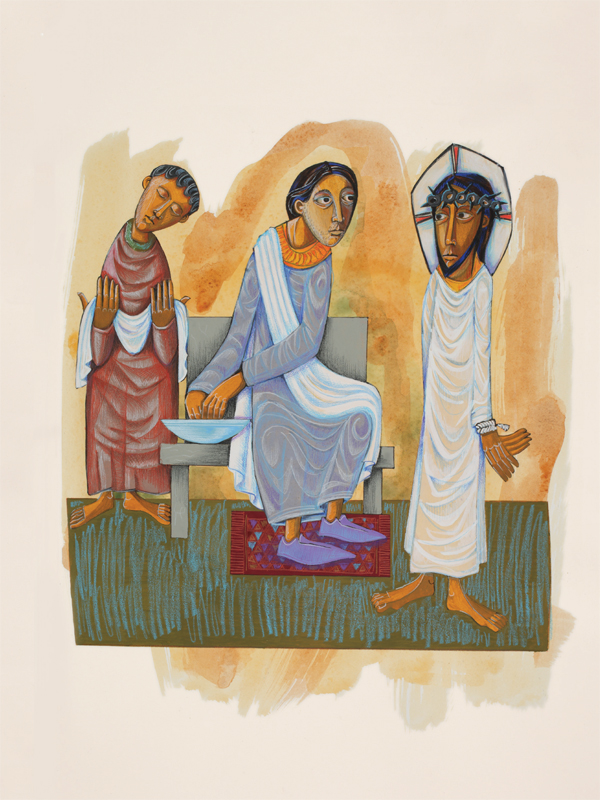
J esus trial is a farce. Pontius Pilate does not think that he is guilty. He washes his hands of any guilt, but he makes little effort to save Jesus. Is this because he is a weary cynic who does not care? What is truth? he asks Jesus (John 18:38). Or is it because it is good to look tough on crime, even if the wrong person gets the punishment? Maybe he is just afraid of Jesus accusers. So, after a token resistance, he goes with the crowd.
All over the world people are facing execution for similar reasons. Sister Helen Prejean showed in Dead Man Walking that many people, especially poor black people in the United States, are sentenced to death without a proper defence because the lawyers have not studied the case and appear not to care. Still today governors do not want to look soft and risk unpopularity.
So innocent people go to their death. Think of the one hundred thousand Christians who die every year just because of their faith. They share the condemnation of our Lord.
But dont we often do the same thing, condemning people without much attention to what they really think and do? Poor people are judged to be scroungers, lazy, and feckless. We are quick to judge others. Maybe this is because we fear to stand out from the crowd. It is dangerous to disagree with the majority.
Sometimes we just cannot be bothered to discover the truth. I was sitting next to a lay university chaplain at lunch who dismissed with contempt a document prepared by the bishops of England and Wales. I said, But it is a beautiful and nuanced document. She replied, I do not do nuance. Truth and justice demand nuance, patiently teasing out the truth before we say anything.
Jesus is accused by his enemies. He bears all the accusations that we load on the backs of others, all the malicious words of condemnation and denigration. Our media are filled with accusation and contempt. We make other people the butt of jokes and ridicule. When we do that, Jesus bears it. But when he comes to judge us on the last day, he will judge us with kindness, with forgiveness. We have condemned him every time we have scorned and despised people, but he will let us go free if we but say yes to his mercy.

